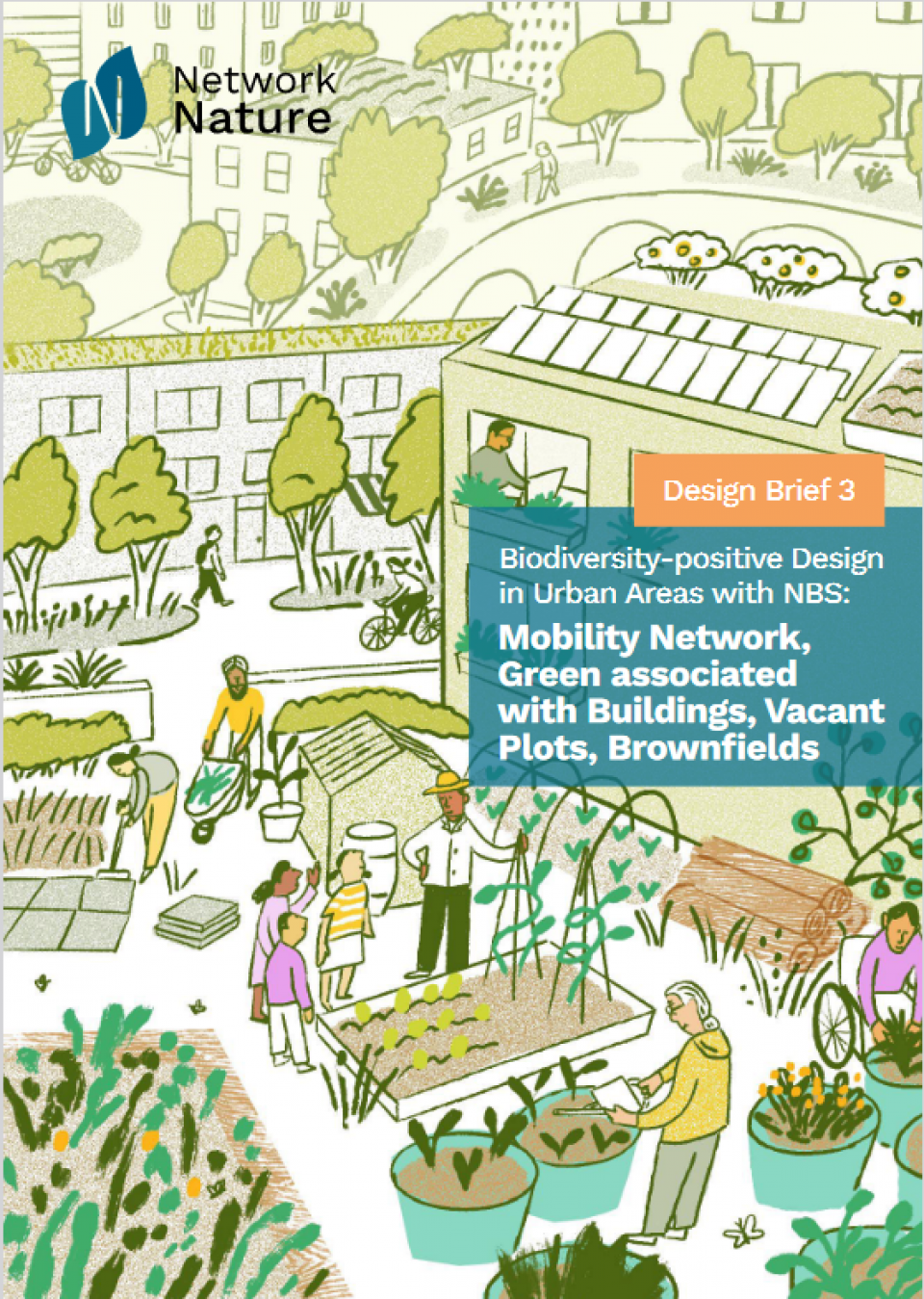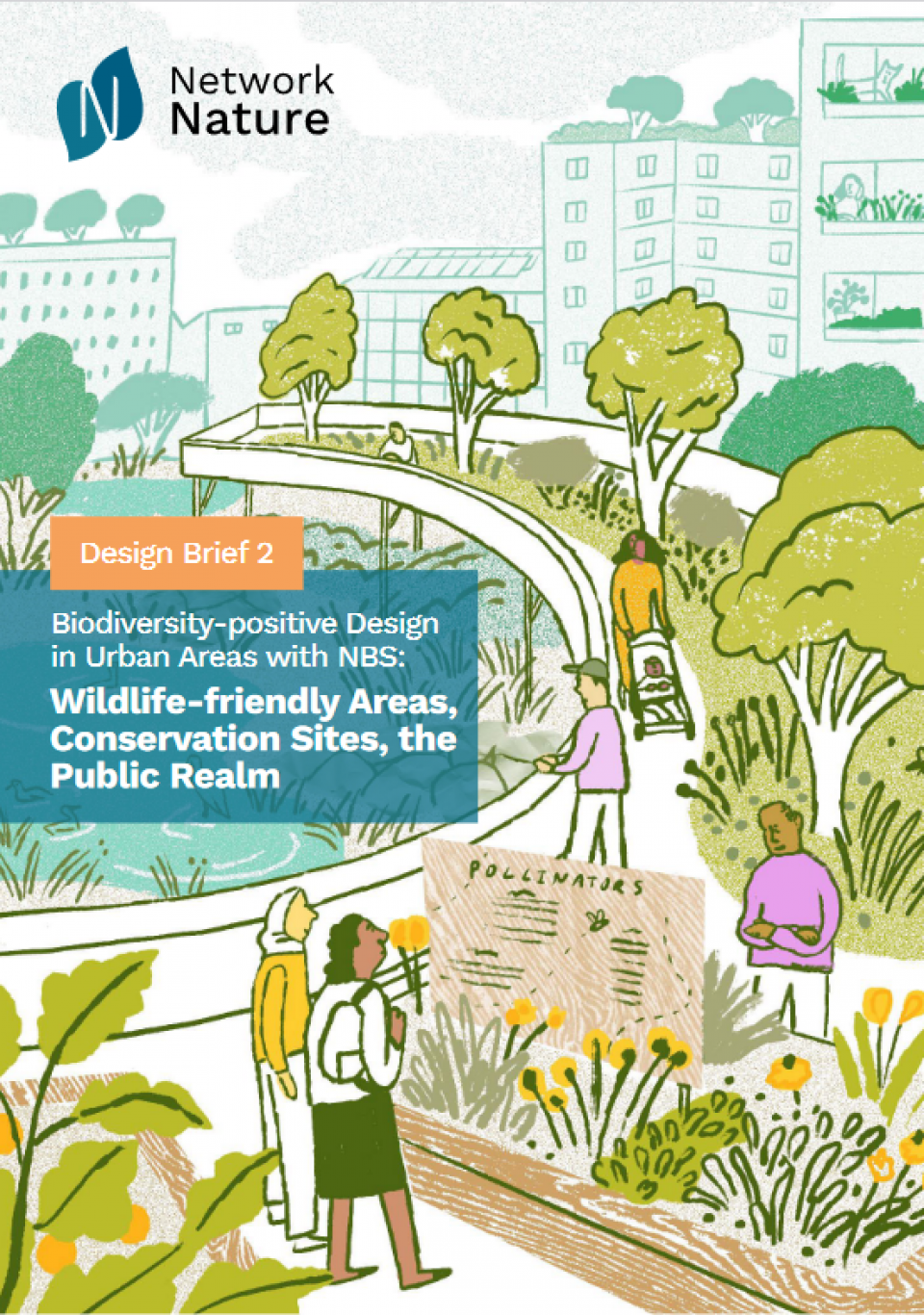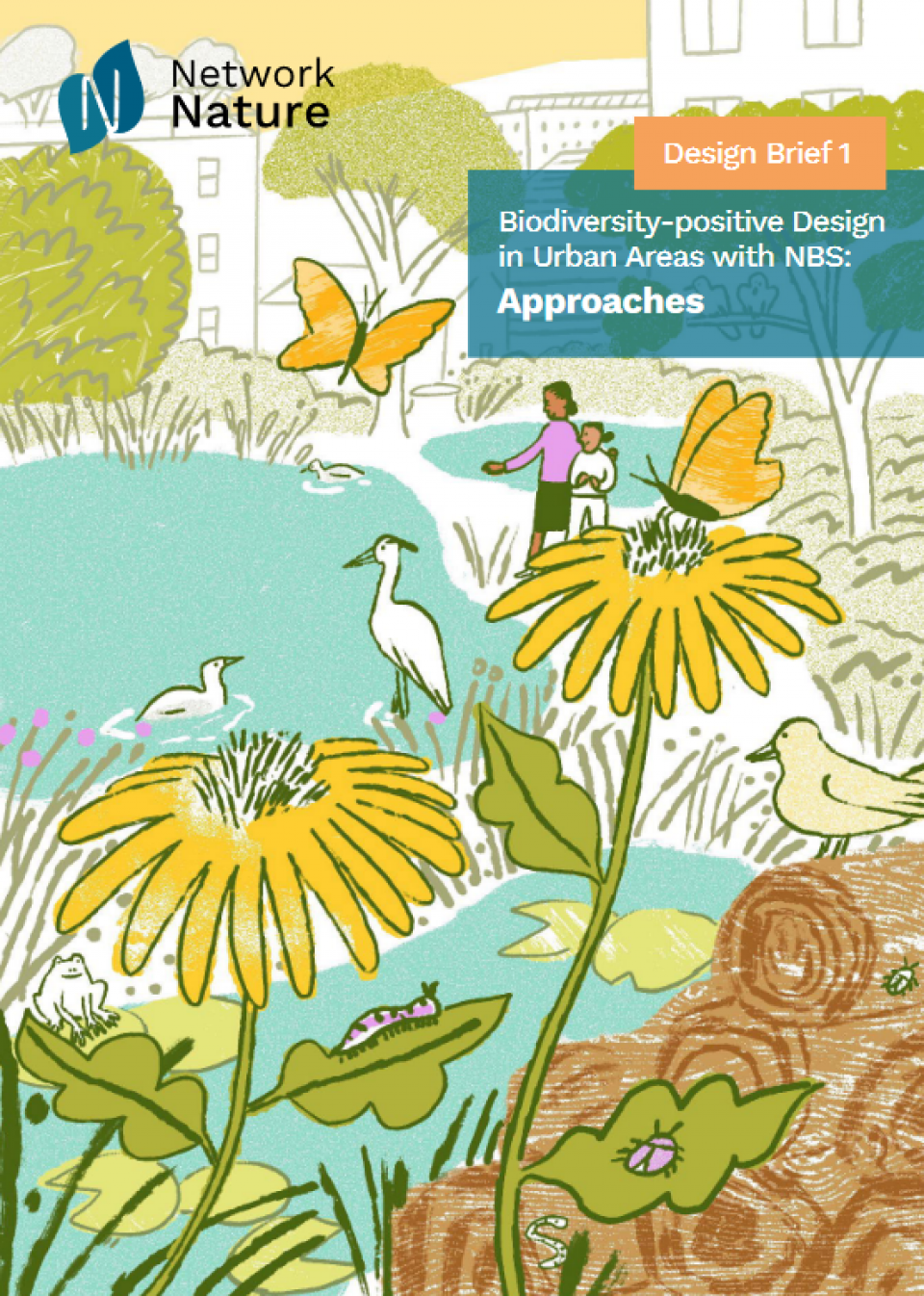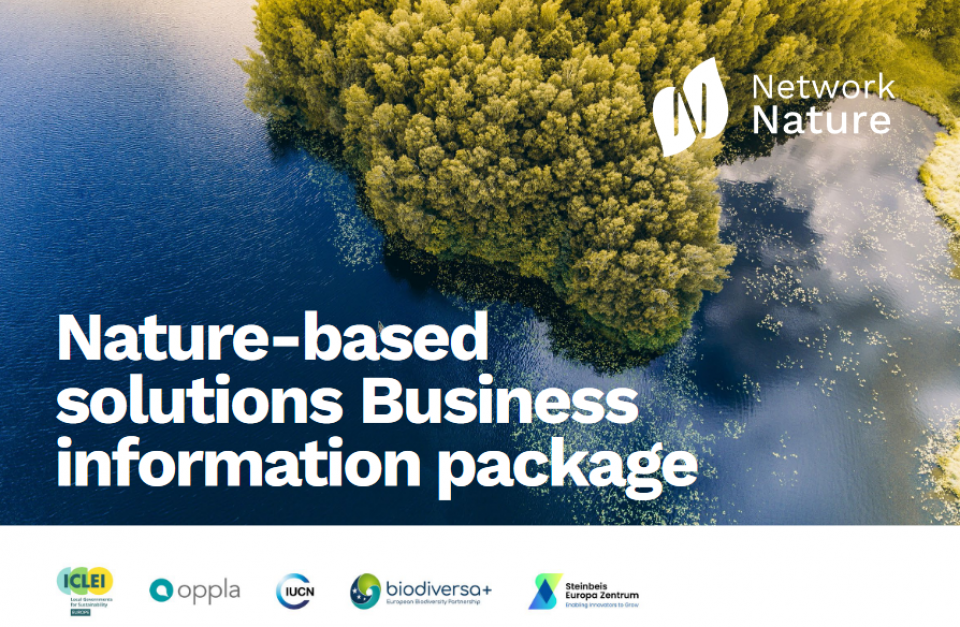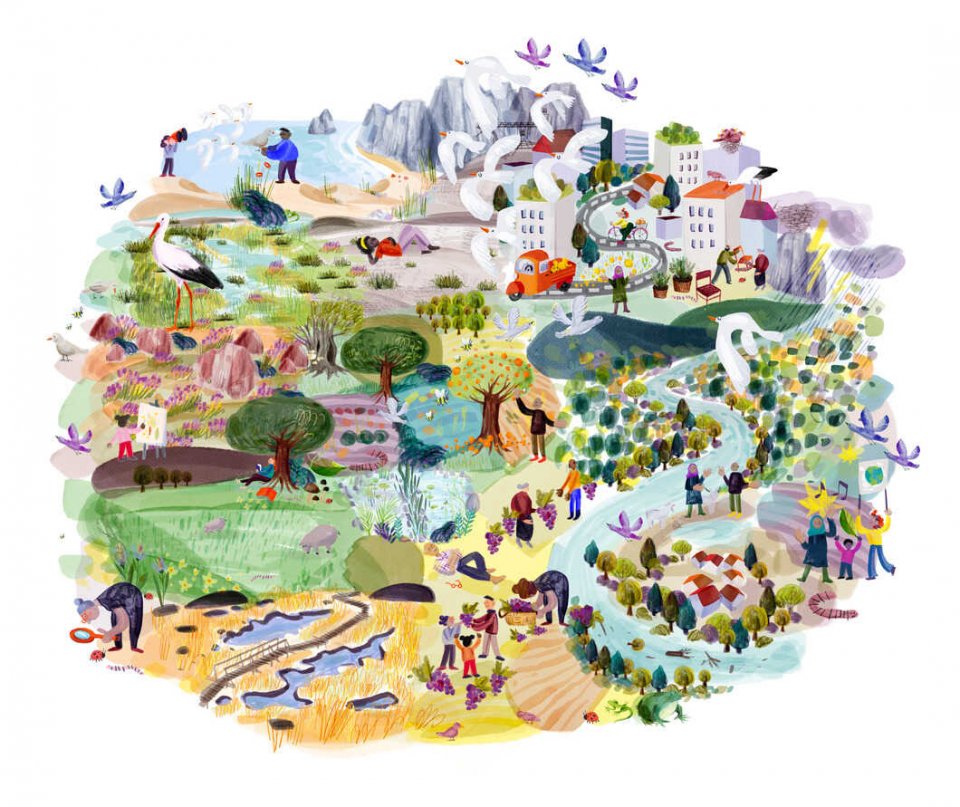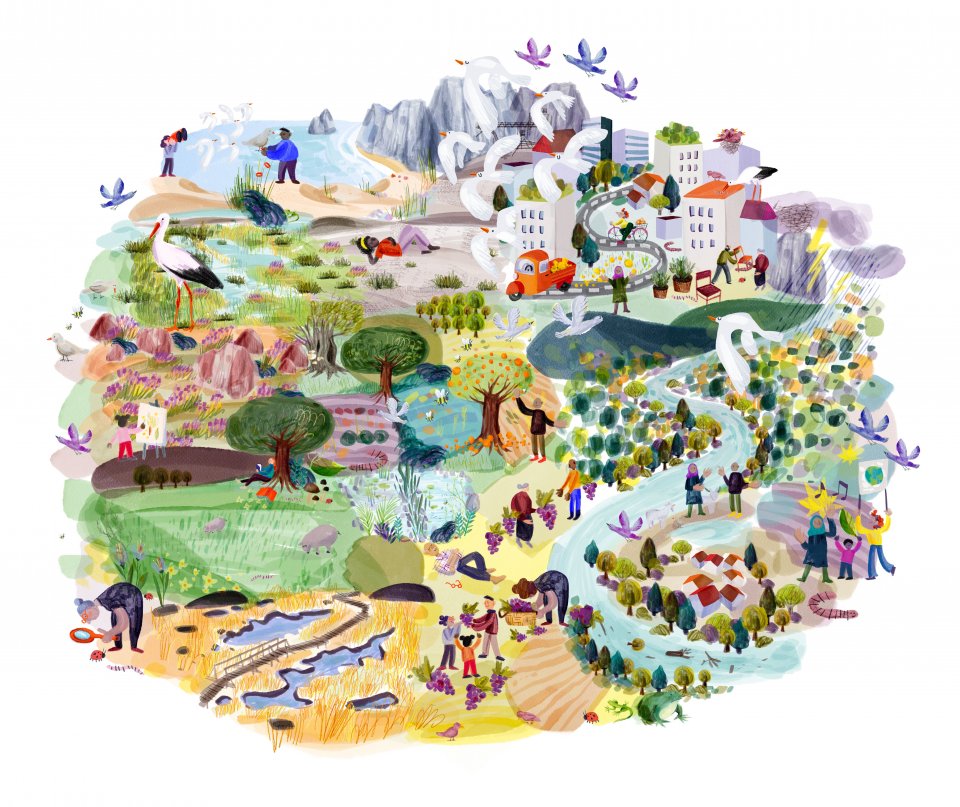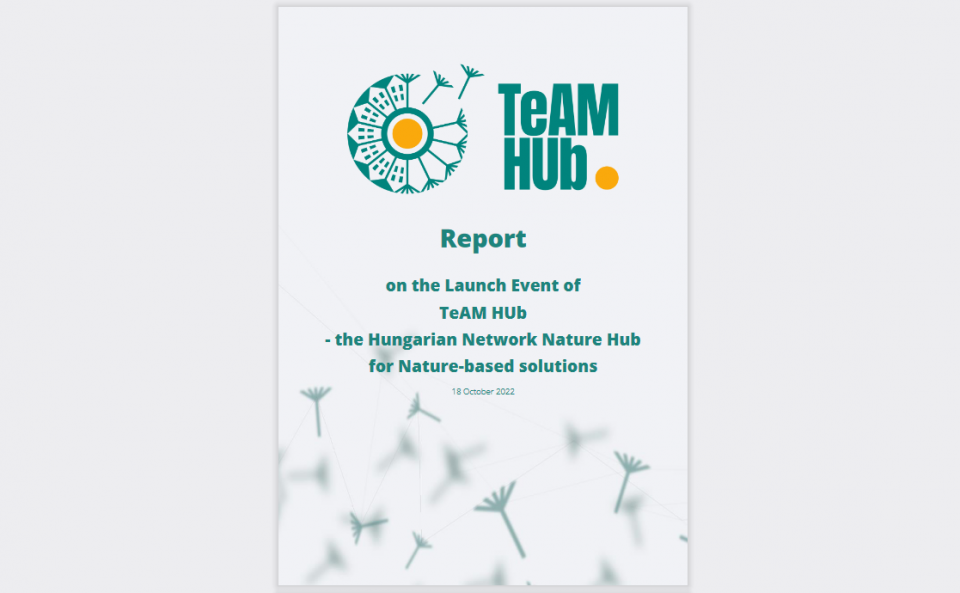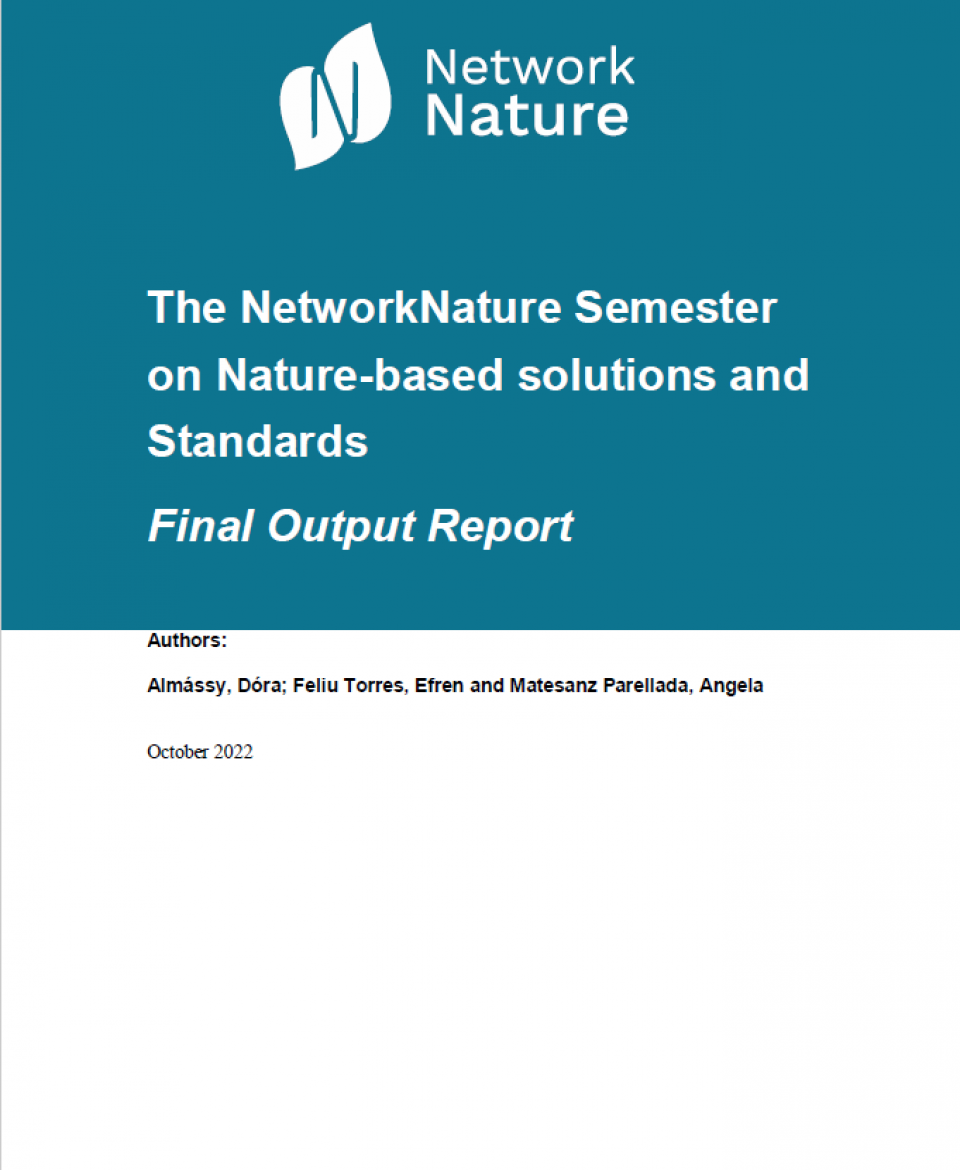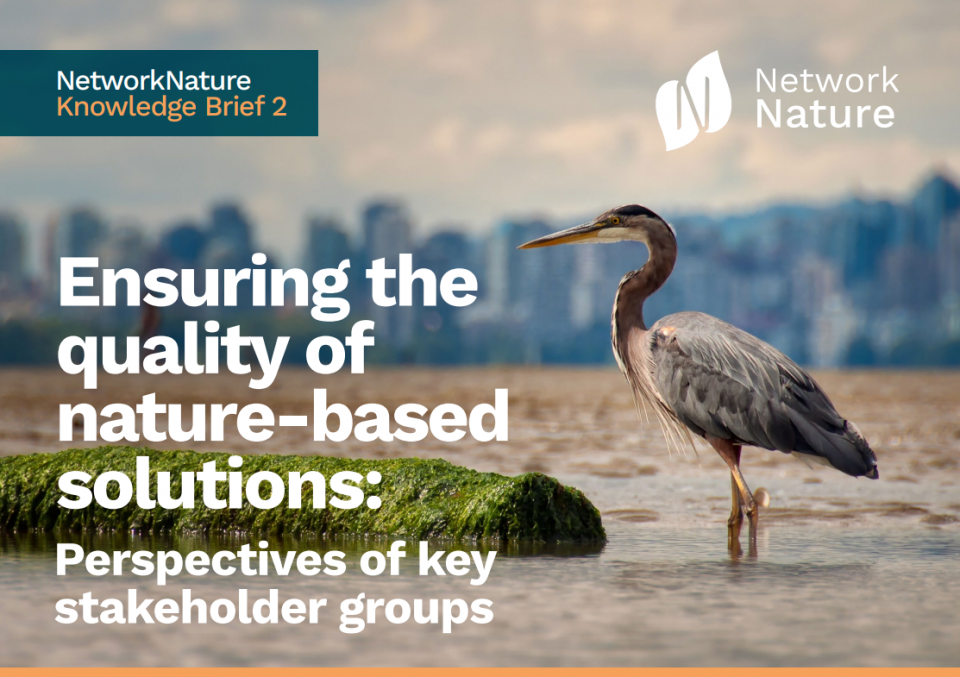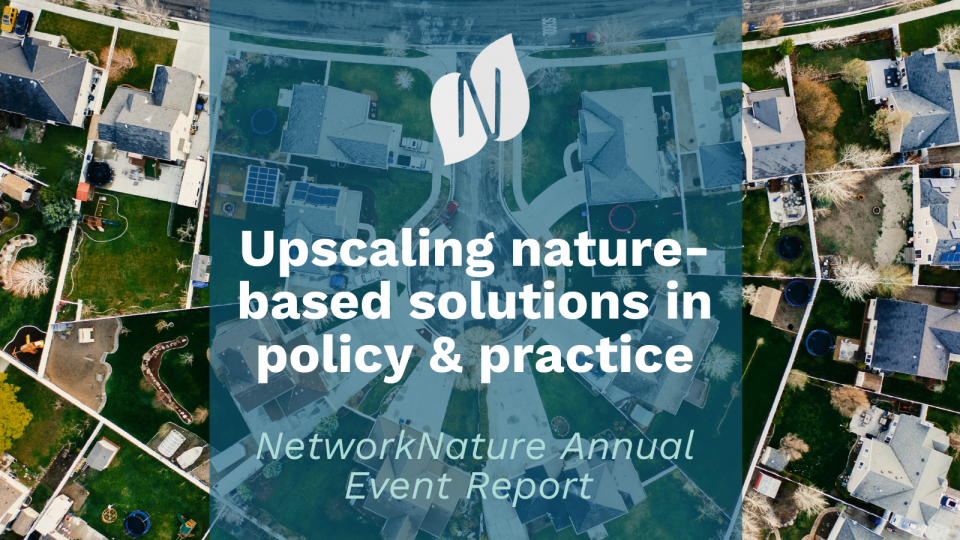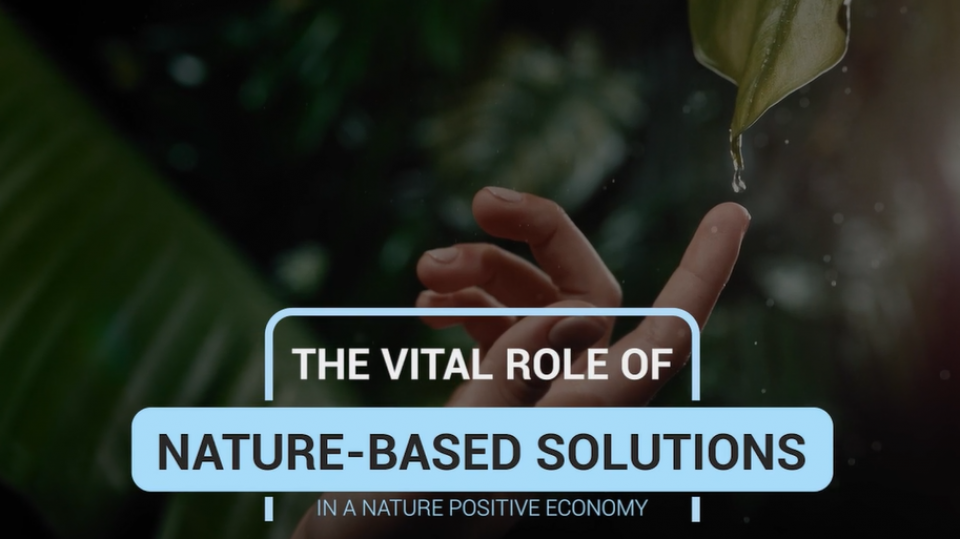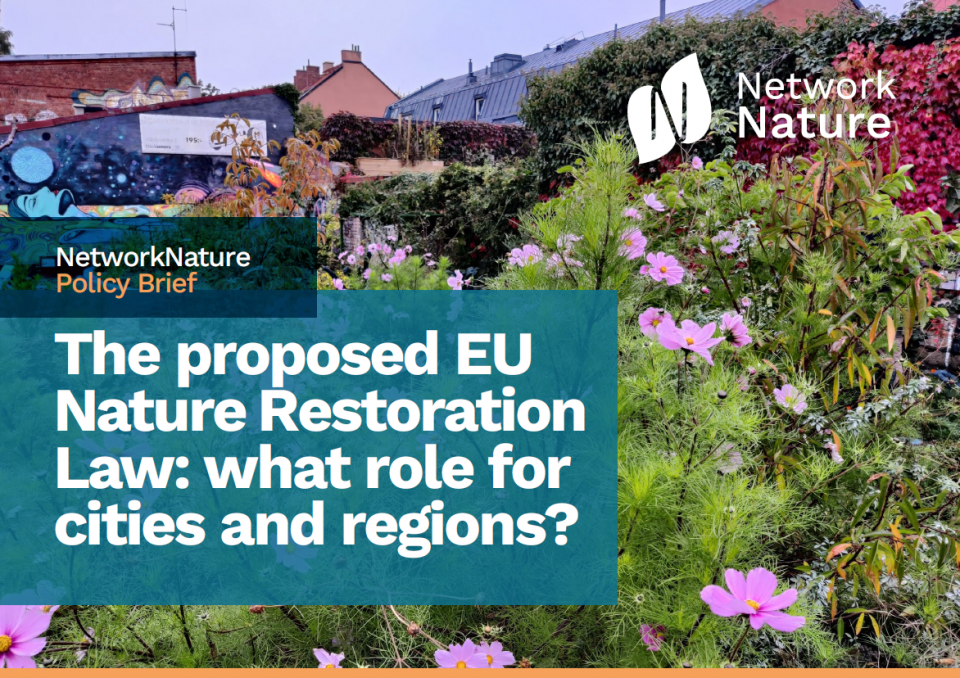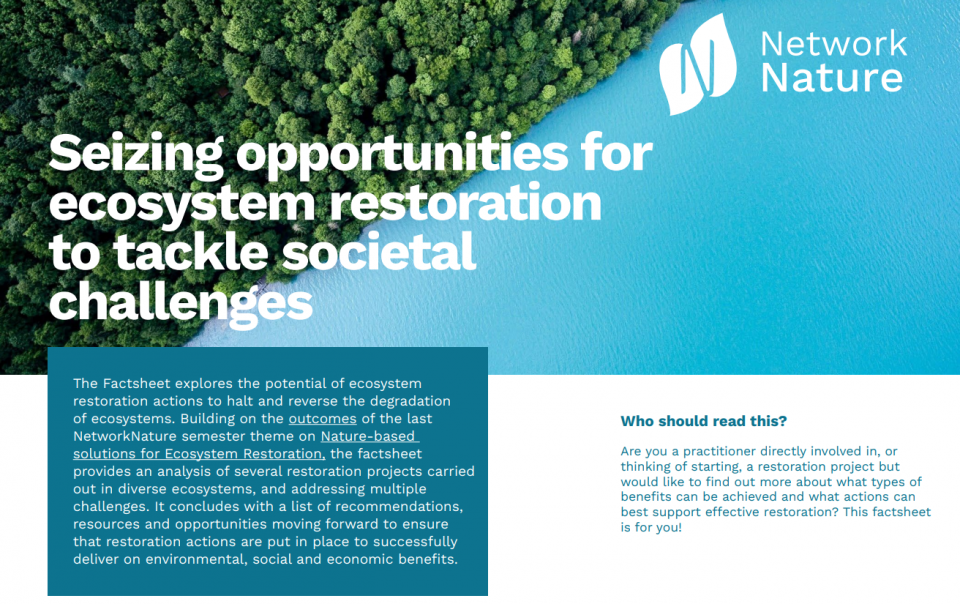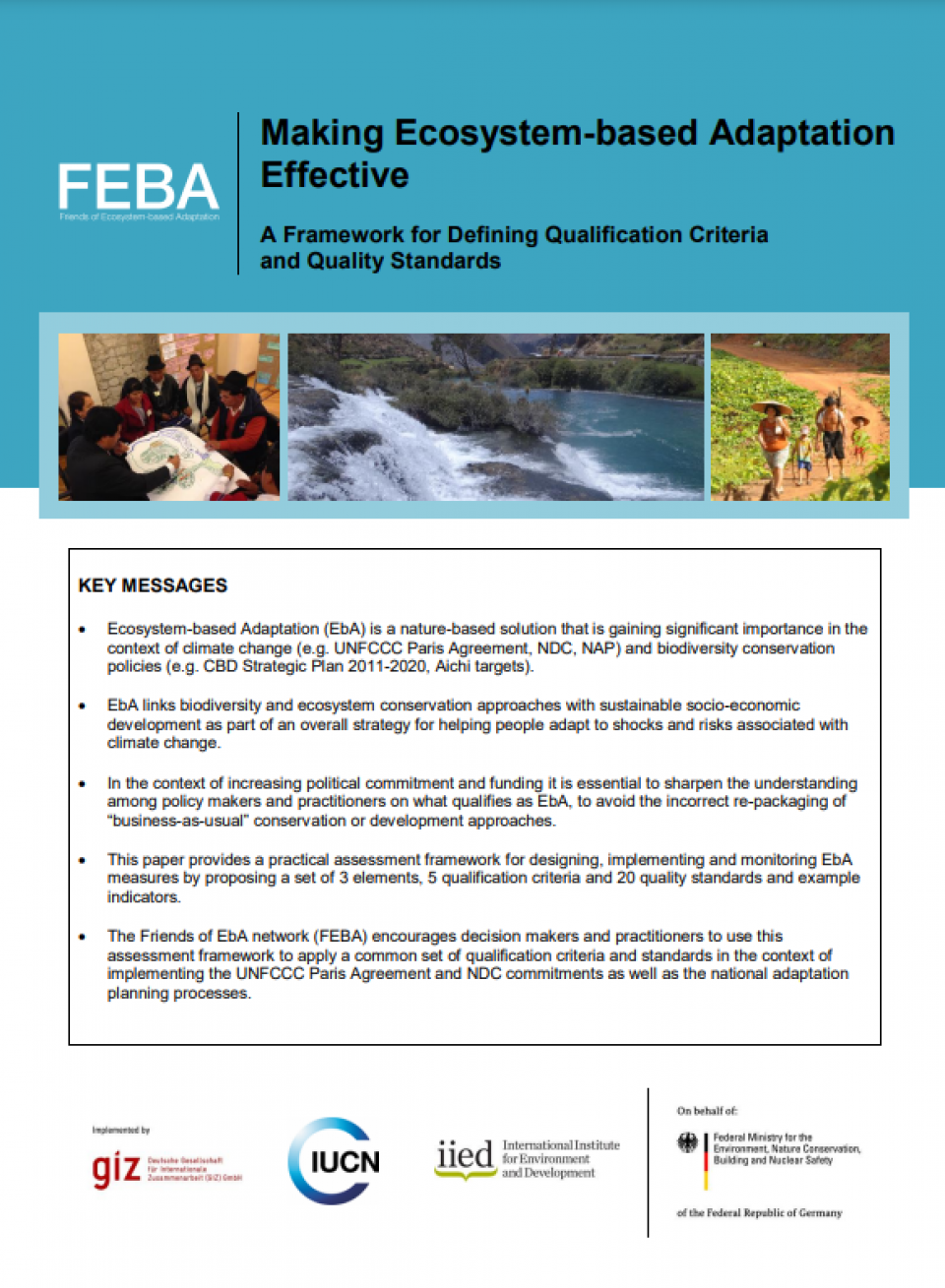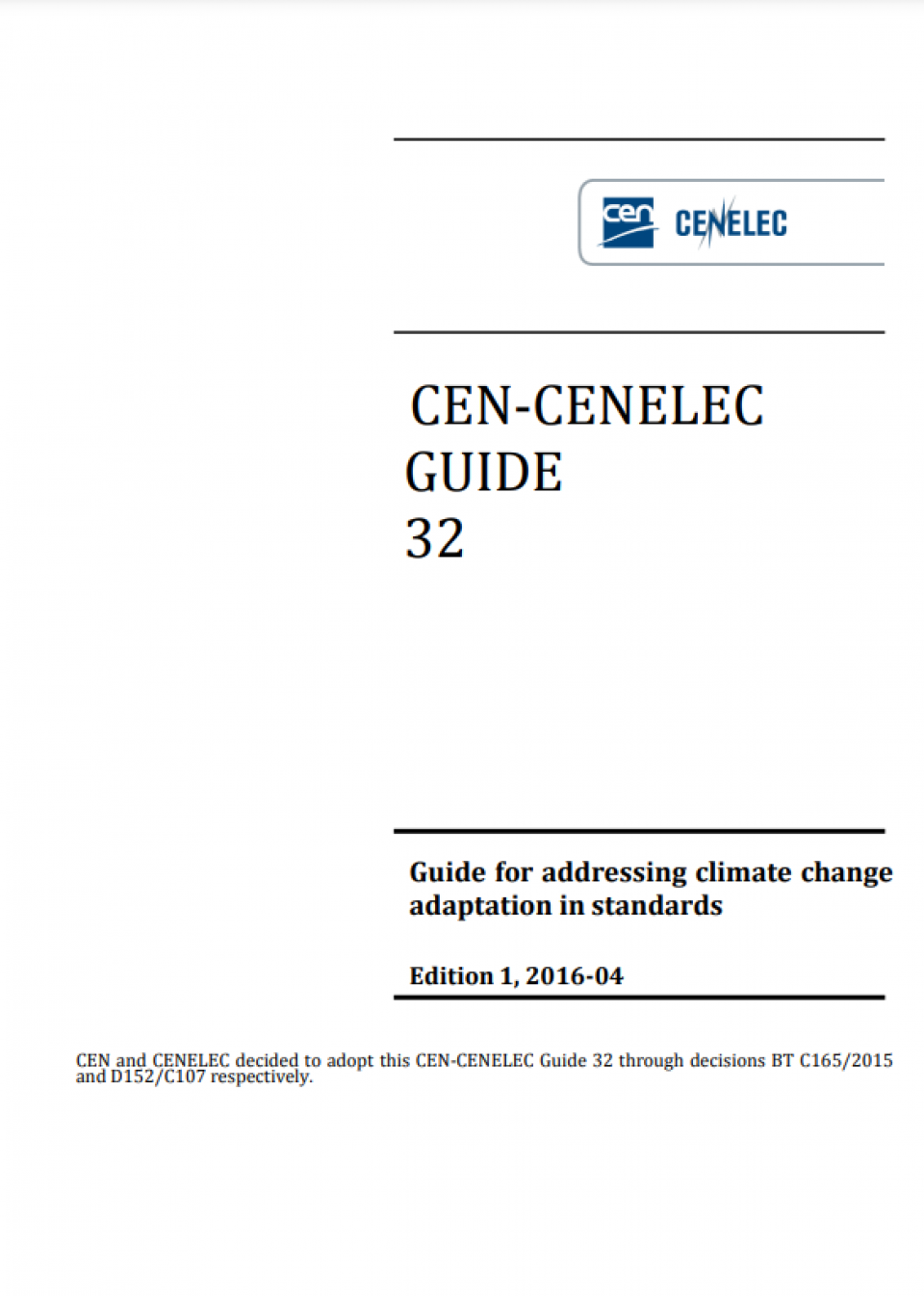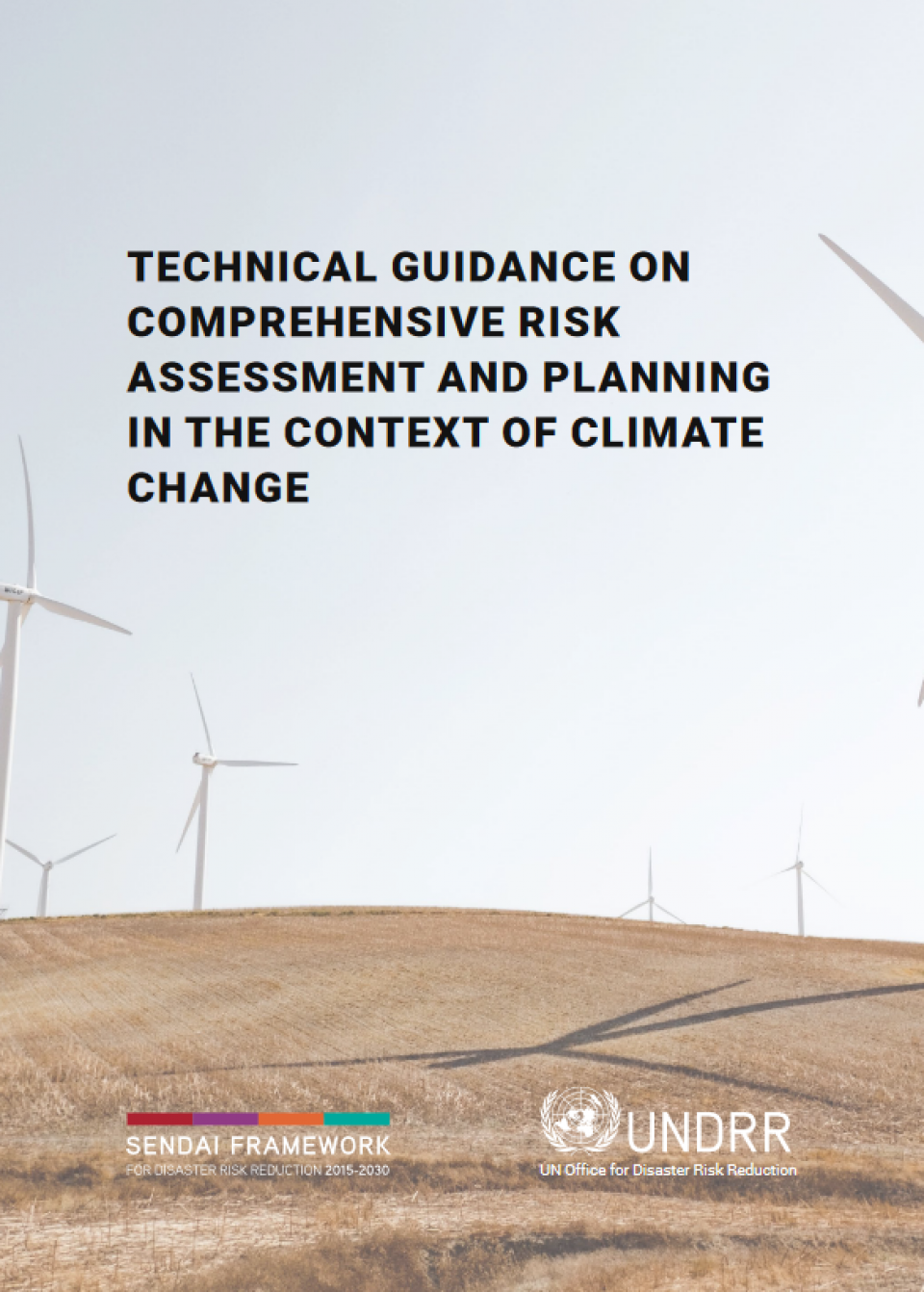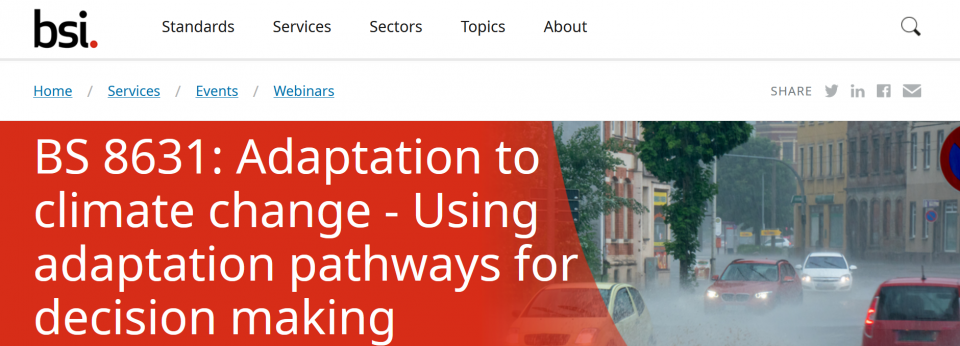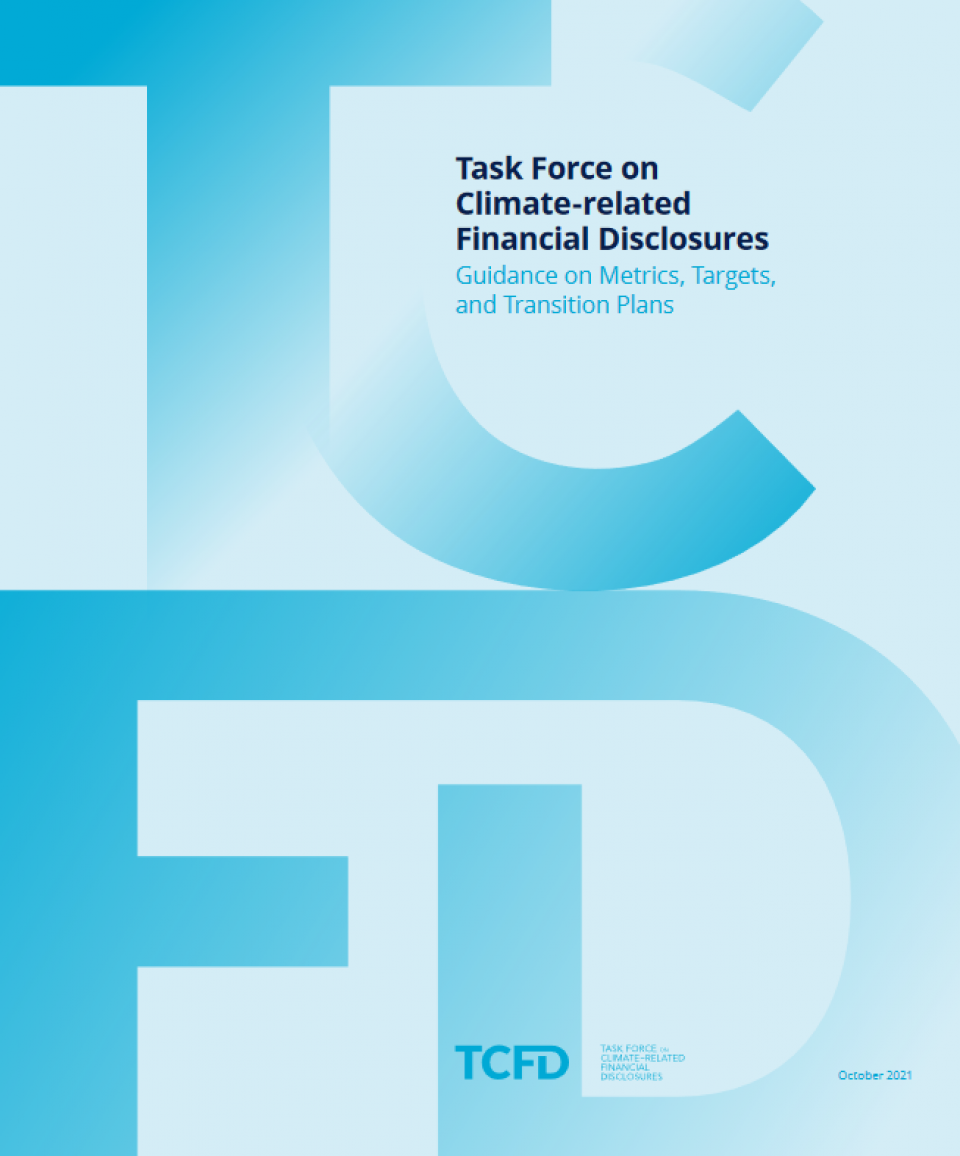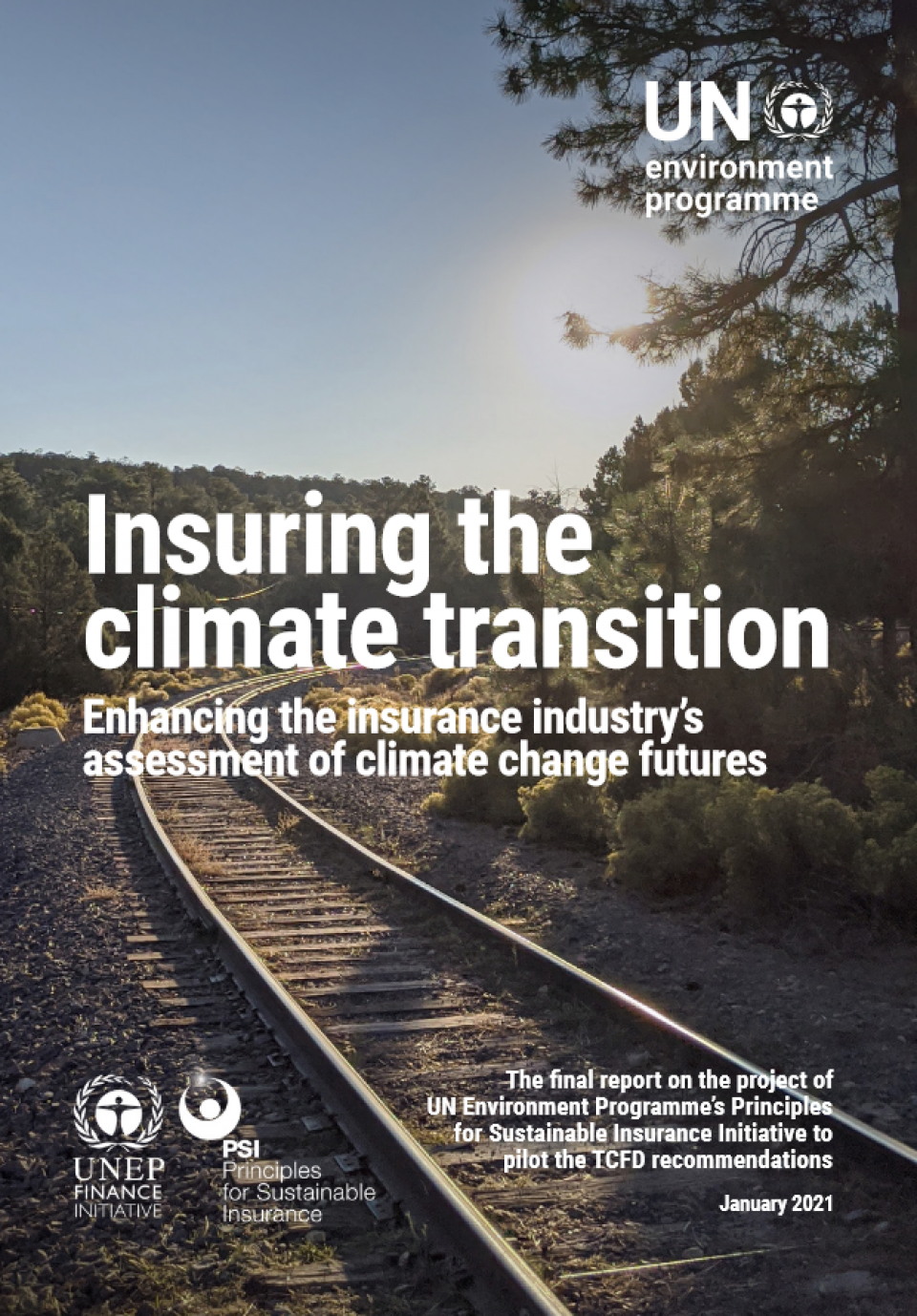Nature-based solutions resources
Selection
Integrating Nature-based Solutions in Education: Unlocking the Potential of Transformative Learning for Sustainability
This policy brief provides a timely and brief overview of the current policy incentives for NbS and sustainability education in Europe, identifies key barriers and opportunities in supporting education systems in taking up NbS education and offers key recommendations for policy makers, educators,
Selection
Design Brief 3- Biodiversity-positive Design in Urban Areas with NbS: Mobility Network, Green associated with Buildings, Vacant Plots, Brownfields
This NetworkNature design brief series, the first of its kind, comprises three design briefs on biodiversity-positive design recommendations for urban and peri-urban areas with nature-based solutions. The series, developed with support of IFLA Europe, presents simple design suggestions for
Selection
Design Brief 2- Biodiversity-positive Design in Urban Areas with NbS: Wildlife-friendly Areas, Conservation Sites, the Public Realm
This NetworkNature design brief series, the first of its kind, comprises three design briefs on biodiversity-positive design recommendations for urban and peri-urban areas with nature-based solutions. The series, developed with support of IFLA Europe, presents simple design suggestions for
Selection
Design Brief 1- Biodiversity-positive Design in Urban Areas with NbS: Approaches
This NetworkNature design brief series, the first of its kind, comprises three design briefs on biodiversity-positive design recommendations for urban and peri-urban areas with nature-based solutions. The series, developed with support of IFLA Europe, presents simple design suggestions for
Selection
Nature-based solutions Business information package
Whether you are just starting out in this field or are a professional already, or simply want to learn more, this document has useful information for everyone. The package starts with introducing the concepts of nature-based solutions and enterprises. We then present examples of nature-based
Selection
Nature-based Solutions Made Easy
About this guide: Have you heard about nature-based solutions and want to know more? Then read on as NetworkNature helps you understand what nature-based solutions (NbS) are. You will also be able to identify those solutions that claim to be NbS but are not. We will introduce you to quality
Selection
NetworkNature Visualisation: EU-Funded Nature-based solutions research projects addressing Societal Challenges across Ecosystems
In this document you can find a visual representation of the different types of ecosystems and most relevant societal challenges in the context of NbS, with the aim to simplify and communicate these concepts, while inspiring NbS good practices. || The European Commission defines Nature-
Selection
Report on the Launch Event of TeAM HUb - the Hungarian Network Nature Hub for Nature-based solutions
This report covers the launch event of TeAM HUb1 - the Hungarian Network Nature Hub for Nature-based solutions took place at the Budapest Congress Centre on 18 October 2022.
Selection
The NetworkNature Semester on Nature-based solutions and Standards Final Output Report
Nature-based solutions (NbS) are locally adapted, cost- and resource-efficient, systemic interventions, which can simultaneously provide environmental, social and economic benefits and build resilience to climate change. As such they have a real and transformative potential to address the two-fold
Selection
NetworkNature Knowledge Brief 2: Ensuring the quality of nature-based solutions - perspectives of key stakeholder groups
This Knowledge Brief produced by NetworkNature aims to explore and analyse different perspectives and perceptions of high-quality nature-based solutions (NbS). The brief provides an overview from key stakeholder groups and draws recommendations for practitioners and policy-makers on how to ensure
Selection
NetworkNature Annual Event Report: Upscaling nature-based solutions in policy and practice
This report was produced by NetworkNature to summarise the main outcomes of the NetworkNature Annual Event "Upscaling nature-based solutions in policy and practice", which took place on 27th September in Brussels. The event provided the opportunity to learn more about the state-of-the-
Selection
The vital role of Nature-based Solutions in a nature positive economy
The Working Group on the Nature-Based Economy of Taskforce 3 produced this short video to highlight the main recommendations of the EC Expert Publication "The Vital Role of Nature-based Solutions in a Nature-Positive Economy". Watch the video and check out the report, which is a first
Selection
The proposed EU Nature Restoration Law: what role for cities and regions?
This policy brief takes a fresh look at the implications of the European Commission’s proposed Nature Restoration Law for cities, regions and local actors. The first of its kind, this paper looks at what the Law holds in store for these governments and authorities – actors on the front lines of the
Selection
NetworkNature Factsheet: Seizing opportunities for ecosystem restoration to tackle societal challenges
This factsheet explores the potential of ecosystem restoration actions to halt and reverse the degradation of ecosystems. Building on the outcomes of the last NetworkNature semester theme on Nature-based solutions for Ecosystem Restoration, the factsheet provides an analysis of several restoration
Selection
Making Ecosystem-based Adaptation Effective A Framework for Defining Qualification Criteria and Quality Standards
Many organizations, including members of the Friends of EbA network (FEBA) 11 have gained both conceptual and practical experience in designing and implementing EbA measures in various regions, ecosystems, and levels of governance. These experiences provide a rich source of lessons and are a good
Selection
Guide for addressing climate change adaptation in standards
This Guide provides guidance on addressing aspects of climate change adaptation in European standardization documents. This Guide is applicable to product (including design), service, infrastructure and testing standards. For the purposes of this Guide, the definition of the term “product” has
Selection
Technical Guidance on Comprehensive Risk Assessment and Planning in the Context of Climate Change
The Technical Guidance on Comprehensive Risk Assessment and Planning in the Context of Climate Change provides orientation on how risks in the context of climate change can be comprehensively and systemically addressed through risk assessment. Decision-making, planning, and integrating
Selection
BS 8631: Adaptation to climate change - Using adaptation pathways for decision making
The climate is changing and making the right decisions around adaption and resilience is increasingly important. BSI is taking a lead in supporting organizations with good practice in this area. With an introduction from the Adaptation sub-Committee of the UK’s Climate Change Committee, the
Selection
Guidance on Metrics, Targets, and Transition Plans
Over the past few years, several market and industry initiatives have focused on converging reporting standards that cover climate issues as well as aligning and improving comparability of climate-related metrics. These efforts include work to harmonize greenhouse gas (GHG) accounting methods to
Selection
UNEP’s Principles for Sustainable Insurance Initiative (2021): Insuring the climate transition: The final report of UN PSI’s TCFD pilot project
The insurance industry is one of the largest global industries with more than USD 6 trillion in world premium volume and USD 36 trillion in assets under management. As such, insurers hold a significant portion of global economic assets and liabilities on their balance sheets. As risk managers,
- ‹ previous
- 2 of 33
- next ›


